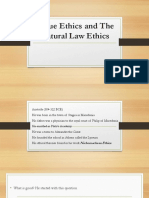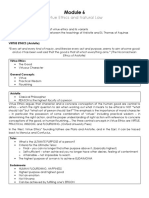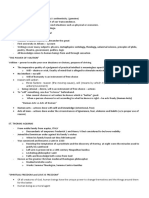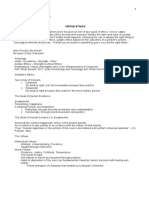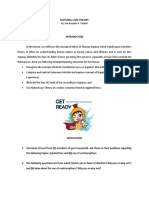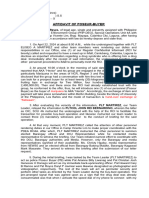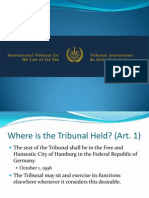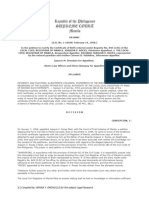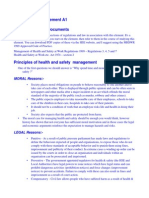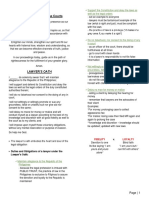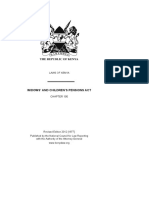Social Contract
State of Nature: Describes an initial condition where humans are free and self-motivated, leading to
chaos.
Ancient and Modern Roots: Originated during the Enlightenment, linked back to Ancient Greek
philosophy through Plato's writings about Socrates.
Definition and Scope: Claims that political and moral obligations arise from an agreement within a
society.
Thomas Hobbes:
Human Nature: Views humans as naturally self-interested and rational.
State of Nature: Describes it as chaotic and dangerous, prompting the need for a social contract.
Social Contract: Proposes individuals give up some freedoms to a sovereign authority for protection and
social stability.
John Locke:
State of Nature: Individuals have certain inherent rights. These include the right to life, liberty, and
property. These rights are inalienable and cannot be surrendered.
Introduction of Property: Property disputes cause problems, necessitating a social contract.
Formation of Society: Families and individuals agree to form a political society, surrendering the power
to enforce natural laws to a government.
Jean-Jacques Rousseau:
State of Nature: Describes it as free and simple, disrupted by the rise of civilization and property.
Problem of Civilization: Civilization leads to inequality and dependence.
Solution: Advocates for forming a collective society where individual wills are aligned with the common
good through a social contract.
_____________________________________________________________________________________
Formation of Society: To avoid chaos, people agree to surrender some freedoms to authorities in
exchange for protection and social order.
Legitimacy of Political Authority: Studies the justification of political power and the obligations of rulers
and subjects.
�Virtue Ethics
Aristotle: Philosopher & Scientist. A student of Plato & a teacher of Alexander the Great.
Definition: Virtue ethics emphasizes developing good habits to become a morally excellent person.
Golden Mean: Virtue lies between excess and defect, a concept Aristotle called the golden mean.
Telos (End) - Seeking Goodness: Aristotle posits that all human actions aim at some good, as articulated
in his "Nicomachean Ethics."
It is always beyond immediate needs. While everyday actions aim at various ends, true virtue aims at a
higher good beyond these immediate goals.
Eudaimonia – Desire for deeper happiness. This is not a fleeting state of mind but a fulfilling and
complete life.
Happiness as Virtue: Aristotle argues that true happiness is attained through practicing virtues.
Four Moral Virtues: In ancient Greece, the key virtues were Prudence, Justice, Fortitude, and
Temperance, which must be practiced to avoid excess and defect.
1. Prudence: Involves making thoughtful and informed decisions. It entails the ability to
deliberate wisely, assess options, and choose actions that lead to overall well-being and fulfillment.
2. Justice: It involves giving each person their due, treating others fairly and impartially, and
acting in ways that respect the rights and dignity of all individuals. It requires balancing personal
interests with the common good and ensuring equitable treatment in all situations.
3. Fortitude: It involves resilience, determination, and the ability to endure hardships with a
steadfast and courageous spirit.
4. Temperance: It involves self-control, moderation. It helps maintain harmony between
personal desires and rational judgment.
Steps to Virtue: To achieve real happiness, remember and practice the four moral virtues (Prudence,
Justice, Fortitude, Temperance) consistently in daily life.
Moral Excellence: Achieved by repeatedly performing virtuous acts
Becoming virtuous requires repeatedly performing virtuous acts, as habits shape charac
Natural Law
St. Thomas of Aquinas: One of the most influential figures in the history of Western philosophy and
theology. His comprehensive synthesis of Christian theology with Aristotelian philosophy has had a
lasting impact on the development of natural law theory.
�Definition: Natural law is based on the principle that "good is to be done and pursued, and evil is to be
avoided. guide human actions towards the fulfillment of natural human inclinations and the ultimate end
of human life: flourishing and union with God.
Moral Constitution is consisting of sensuality, appetites, the will, and reason. What confers on a person
the attributes of morality are that these elements are the ingredients of free acts.
Human Nature and Moral Experience:
Appetites and Passions: Our bodies and senses lead to appetites for pleasure and avoidance of
pain, forming the basis of love, pleasure, hate, and fear.
Role of Will and Reason: In humans, the will, guided by reason, makes choices to achieve good
and happiness. Correct choices lead to happiness, but the intellect is necessary to guide the will.
Basis of Morality:
Human Nature: Moral obligations are rooted in human nature.
Respecting the natural events of life.
Do Good and Avoid Evil: The basic moral principle
Hierarchy of Laws:
Eternal Law: God's overarching governance of the universe.
Natural Law: Human participation in eternal law, guiding actions to fulfill natural and supernatural ends.
Human Law: Derived from natural law, these are societal laws that must conform to moral and natural
laws.
Divine Law: Given through revelation, it ensures guidance towards supernatural ends and eternal
happiness.
Virtues and Human Purpose:
Natural Virtues: Achieved through reason and will, including justice, temperance, courage, and
prudence.
Theological Virtues: Faith, hope, and love, infused by God's grace, guide humans to their highest nature
and supernatural ends.


